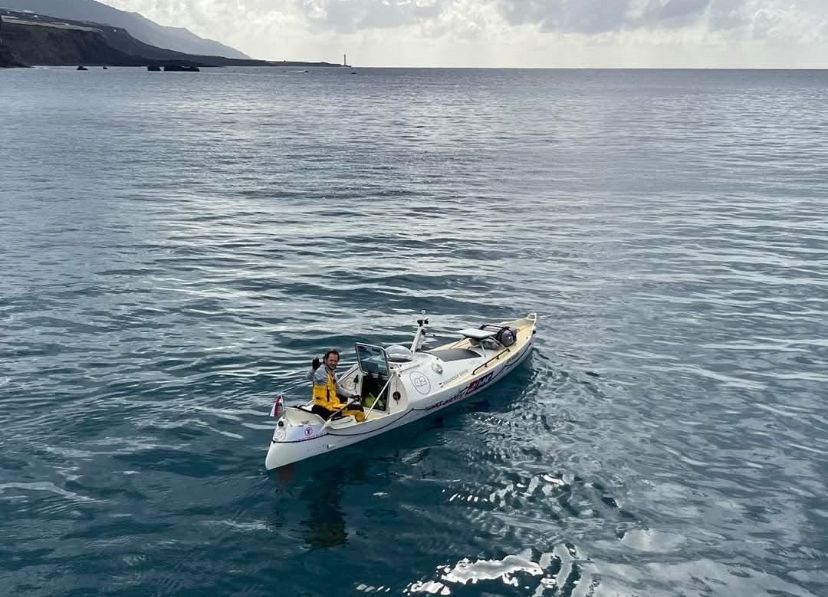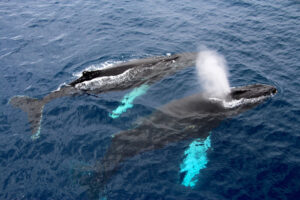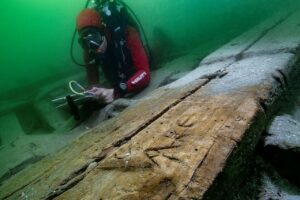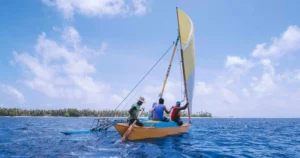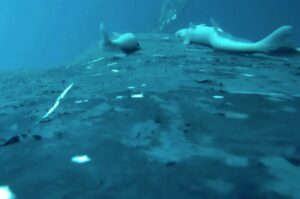On December 23, Gabor Rakonczay started paddling from La Palma in the Canary Islands. The Hungarian adventurer is hoping to canoe 5,000km across the Atlantic Ocean to Antigua. He was originally scheduled to leave on December 16 but difficult weather delayed him several times.
Unlike most current Atlantic crossings, Rakonczay is not rowing. He is canoeing. In the past 18 years, he has completed several ocean expeditions. Back in 2007, he became the first Hungarian to row across the Atlantic. In 2012, he was the first person to make a transatlantic crossing by canoe. Note that his “canoe” resembles the sort of custom sea-going kayak used by ocean crossers like Cyril Derreumaux, with lots of storage and a cockpit for sleeping. But he uses a single-bladed paddle, hence “canoe.”
Rakonczay has tried to cross the Atlantic on an SUP twice, and both ended in disaster. On the first, he had to turn back because of damage to his craft. On the second, he had to be rescued after he began hallucinating from sleep deprivation.
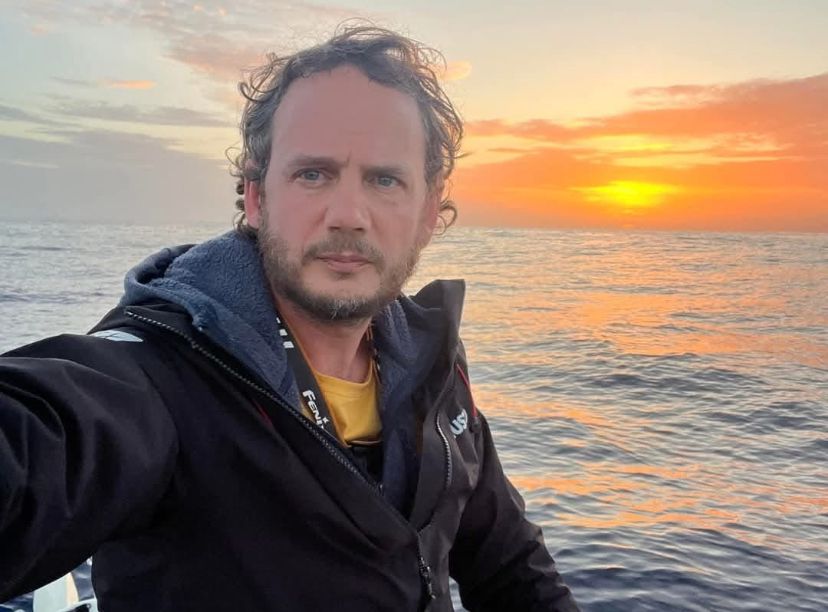
Photo: Gabor Rakonczay
About the boat
Rakonczay custom-made his vessel based on the same design that he used to cross the ocean in 2012.
“This is the fifth ocean [boat] I’ve designed and built,” he wrote on social media. “I have condensed into the new ship the 15,400km of experience I have so far. The result is a 170kg, seven-meter-long vessel with 16 open and 6 closed compartments, a cabin, epoxy-glass laminate, and a closed cell foam sandwich structure.”
He named the canoe 42, after the age he was when he decided to undertake this last adventure. (Rakonczay is now 43.)
“There will be ultrarunning and many other projects in my life, but I will finish the high-danger adventures,” he promised.
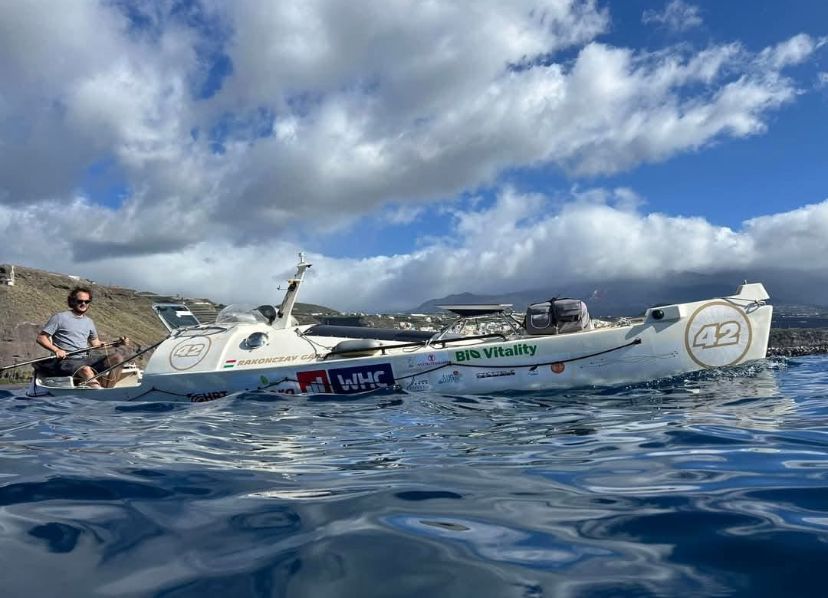
Photo: Gabor Rakonczay
Rakonczay hopes to complete the crossing in 65 days. However, experience has shown him that expeditions rarely go according to plan when crossing an ocean. For that reason, he has packed enough food for 80 days.
A stern test run
Though the crossing started a week ago, the project has been underway for some time. Most ship their boat to the start line. Instead, Rakonczay did a test run in December 2023 by paddling 1,400km from Portugal to the Canary Islands.
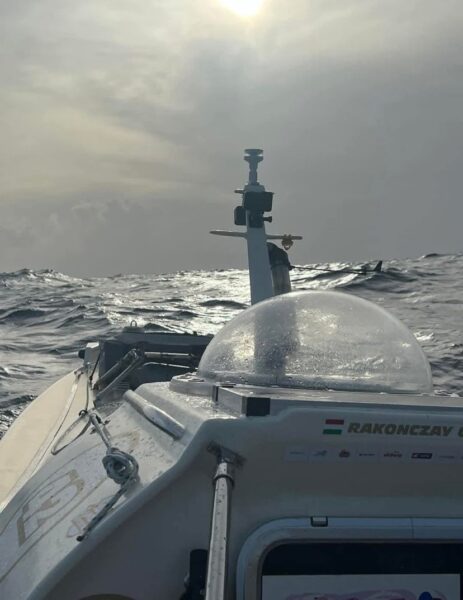
Photo: Gabor Rakonczay
He thought the crossing would take 16-20 days. It took a month because of a complete lack of wind and excess shipping traffic. The closure of the Suez Canal meant that cargo ships went through Gibraltar.
“Because of this, I had 8-10 cargo ships around me all the time,” he said. “Navigation…was like a game of chess.”
His boat then sat in storage in La Palma, in the Canary Islands, ready to begin the ocean crossing.
During his first four days on the water, Rakonczay covered 245km. The initial few days were not easy. Waves crashed around him, rain poured, and lightning struck nearby every few minutes. Conditions now are more manageable.
You can follow his progress here.
